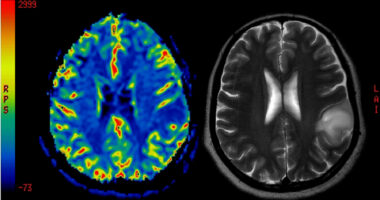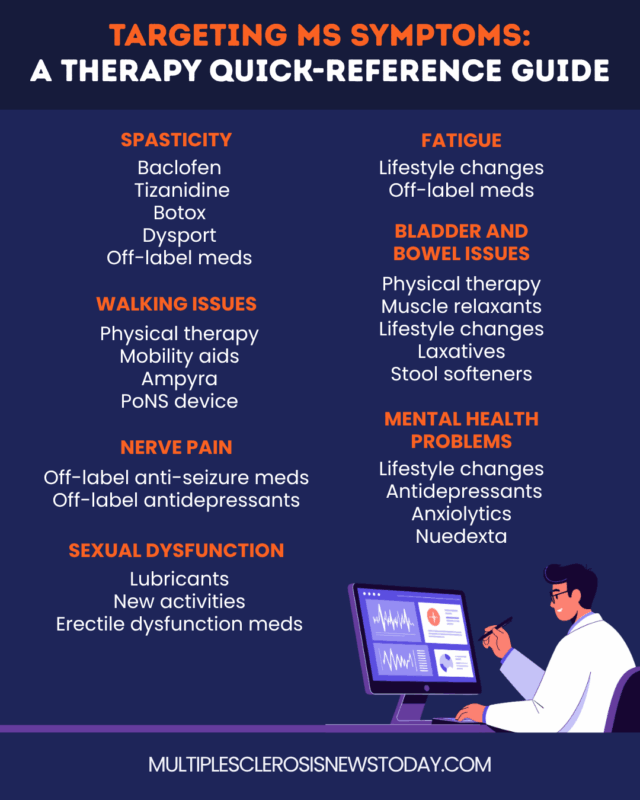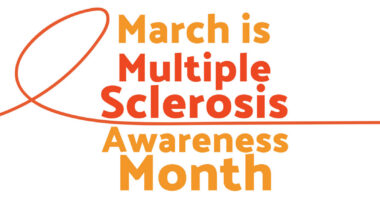
Medications for multiple sclerosis symptoms
Last updated July 10, 2025, by Marisa Wexler, MS

A variety of medications are available to help manage the symptoms of multiple sclerosis (MS). While these treatments don’t alter the course of the disease, they can ease specific symptoms to reduce discomfort, support daily functioning, and improve a person’s overall well-being.
MS symptoms vary from person to person and may include spasticity, difficulty walking, fatigue, pain, and bladder and bowel issues.
These symptoms occur due to inflammation in the brain and spinal cord, which damages the myelin sheath, a protective coating around nerve fibers that is essential for proper nerve communication. The specific symptoms that a person with MS experiences will depend on which parts of the nervous system are affected.
Treating MS generally involves long-term use of disease-modifying treatments, or DMTs, which are medications that can reduce disease activity and slow the progression of disability. Other therapies can be used to ease disease relapses when they occur.
Finally, there also are symptomatic therapies that can ease individual symptoms to make them less bothersome and easier to cope with in day-to-day life.
Spasticity
Spasticity refers to muscle stiffness and involuntary spasms, and is estimated to affect about 60%-90% of people with MS.
Several medications are approved by the U.S. Food and Drug Administration (FDA) to help manage spasticity in MS patients. These therapies work by dampening the nerve signals that tell muscles to contract, thereby reducing abnormal muscle contraction.
FDA-approved options for spasticity include:
- baclofen, a muscle relaxant available in oral and injectable formulations
- botulinum toxin products, such as Dysport and Botox
- tizanidine, a muscle relaxant sold as Zanaflex and others
- dantrolene, a muscle relaxant marketed as Dantrium and others
- diazepam, an anxiolytic medication sold as Valium and others.
Other medications are available that are not specifically approved for spasticity, but are sometimes used off-label to help manage this symptom. These include:
- clonazepam (sold as Klonopin and generics)
- gabapentin (marketed as Neurontin, among others)
- carbamazepine (sold as Tegretol and others)
- pregabalin (sold as Lyrica and generics).
Fatigue
Fatigue is one of the most common symptoms of MS, affecting about 80% of patients. It is often managed through lifestyle changes, such as improving sleep and dietary habits, reducing stress, and getting regular exercise. But in some cases, medications may be used.
No medications are specifically approved to treat MS-related fatigue, but several therapies may be prescribed off-label for this purpose:
- amantadine (sold as Gocovri and generics)
- modafinil (sold as Provigil and others)
- selective serotonin reuptake inhibitors such as fluoxetine (sold as Prozac among others).
Walking issues
Walking issues in MS often become more pronounced as the disease progresses, and problems with gait, or an individual’s manner of walking, can significantly affect a person’s independence and quality of life.
Management typically involves supportive interventions such as physical therapy and the use of mobility aids. In some cases, however, medications and devices may be used.
FDA-approved options to help improve MS-related walking difficulties include both drugs and noninvasive devices:
- Ampyra (dalfampridine), an oral medication that works by strengthening electrical signals from damaged neurons, has been shown to improve walking speed.
- The Portable Neuromodulation Stimulator (PoNS) is a device used to boost the benefits of physical therapy. Approved for adults with mild to moderate MS symptoms, this noninvasive device delivers mild electrical stimulation to the tongue, which travels to the brain to promote neuroplasticity, or the brain’s ability to essentially rewire itself in response to new experiences.

Bladder and bowel problems
Bladder and bowel symptoms are common in MS. These may include frequent urination, incontinence, or constipation, and can range from mild to more severe problems.
Bladder dysfunction
MS-related bladder problems usually result from spasticity or overactive bladder muscles, which can cause the need to urinate urgently and/or frequently, or difficulty fully emptying the bladder.
In addition to lifestyle changes and pelvic floor physical therapy, treatment can also involve medications that relax bladder muscles or modulate nerve signals to improve bladder control. FDA-approved medications for MS-related bladder problems include:
- Botox (onabotulinumtoxinA)
- oxybutynin (sold as Oxytrol and others)
- darifenacin (available as generics only)
- mirabegron (sold as Myrbetriq and generics)
- solifenacin (sold as Vesicare and others).
In some cases, electrical stimulation of the muscles controlling the bladder may also be recommended to improve bladder control.
Constipation
Constipation is one of the most frequent bowel symptoms in MS and can lead to complications if not managed properly.
Such issues are generally managed with lifestyle changes like increasing fiber intake, drinking more fluids, and exercising regularly. But over the counter laxatives and stool softeners, which help stimulate bowel movements or soften stools, also may help ease constipation in MS. These include:
- docusate-based stool softeners such as Colace and Enemeez
- bisacodyl-containing laxatives (Dulcolax and similar products)
- sodium phosphate enemas such as Fleet Enema
- glycerin suppositories such as Sani-Supp.
Sexual dysfunction
Sexual dysfunction is a common symptom of MS that may present in the form of reduced sensation, arousal difficulties, and an inability to achieve orgasm.
There are a few treatments that can make these issues more manageable. For example, erectile dysfunction, a common MS symptom in men marked by the inability to achieve or maintain an erection, can be managed with medications that increase blood flow to the penis. Among them are:
- sildenafil (sold as Viagra, among others)
- tadalafil (marketed as Cialis and others)
- alprostadil (sold as Caverject, among others).
Other forms of sexual dysfunction, such as vaginal dryness or reduced genital sensation, are typically managed with changes during sexual intimacy — for example, using water-based lubricants or trying new toys, positions, or activities.
Nerve pain
MS-related nerve pain can feel like burning, tingling, stabbing, or electric-shock sensations. It occurs due to damage to parts of the nervous system that are involved in processing physical sensations.
While no therapies are specifically approved to manage pain or other uncomfortable sensations caused by MS, several medications can be used off-label. These include:
- anti-seizure medications such as carbamazepine, gabapentin, lamotrigine, and pregabalin
- antidepressants such as amitriptyline and duloxetine.
Mental health
Living with MS can lead to mental health problems such as depression, anxiety, and mood swings. Antidepressants and anxiolytics, combined with lifestyle changes like practicing regular exercise and eating healthy, may help manage these symptoms.
For pseudobulbar affect, a sudden burst of uncontrollable laughter or crying, Nuedexta (dextromethorphan and quinidine) is the only therapy that is FDA-approved. But antidepressants also may be helpful for managing uncontrolled bouts of laughing or crying that are not connected to the person’s emotional state.
Symptomatic therapies can help ease the day-to-day challenges of living with MS. But patients should always consult a healthcare provider to determine the most appropriate treatment plan for their specific symptoms and needs.
Multiple Sclerosis News Today is strictly a news and information website about the disease. It does not provide medical advice, diagnosis, or treatment. This content is not intended to be a substitute for professional medical advice, diagnosis, or treatment. Always seek the advice of your physician or other qualified health provider with any questions you may have regarding a medical condition. Never disregard professional medical advice or delay in seeking it because of something you have read on this website.
Recommended Posts
- Foralumab reduces microglial activity, inflammation in nonactive SPMS
- Living a full life as a mom with MS
- Living with MS puts me in the center of everything — literally and figuratively
- Ironically, cutting out coffee gave me a boost of energy
- MS Awareness Month events highlight advocacy, education, fundraising



